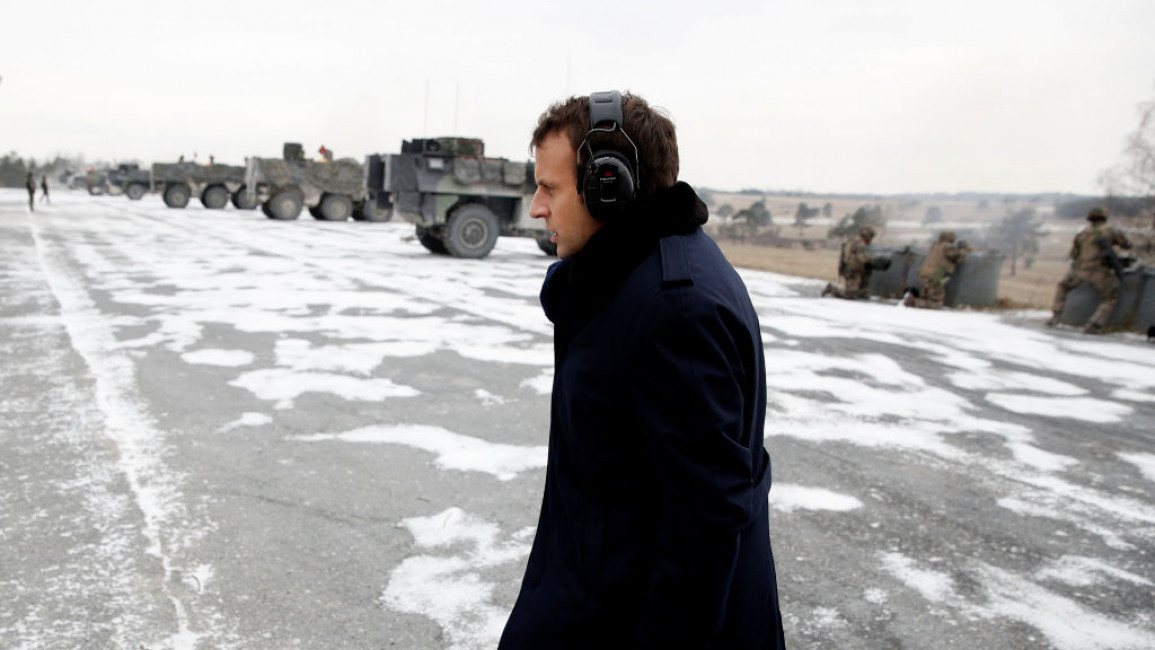Macron plans to visit Rabat in January to thaw 'icy ties'
French Foreign Minister Catherine Colonna will reportedly visit Morocco in mid-December to ease tensions with Rabat ahead of President Emmanuel Macron's visit scheduled for January.
"Nothing is fixed yet, and the visit can be postponed amicably," a diplomatic source told AFP.
After a "silent crisis" that lasted for months, President Macron and King Mohammed VI resumed contact on 1 November in light of Macron's upcoming visit.
Although speculative, the first signs of 'icy ties' between Rabat and Paris emerged right after the Pegasus scandal.
In 2021, the French daily Le Monde said that in 2019 cell phones of President Macron and fifteen members of the French government may have been among potential targets of surveillance by spyware made by the Israel-based NSO Group. The Moroccan king was also among the targets.
According to the French newspaper, the client was an unidentified Moroccan security service. Macron said he asked Morocco and Israel for clarifications. Rabat has denied all the allegations.
Since then, communication between the two leaders, Macron and Mohammed VI has reportedly stopped, despite living a stone's throw from each other.
In the last two years, the Moroccan king has spent quite a time in his residence in the 7th arrondissement in Paris, a few meters away from the Élysée.
Experts speculate that the 'visagate' and the Western Sahara issue are at the heart of the Paris-Rabat discord.
Last year, Paris decided to halve the entry visas granted to Moroccans under the pretext of the kingdom's reluctance to re-admit its nationals illegally residing in France. The same 'punishment' was also taken against Tunisia and Algeria but was eased lately after diplomatic agreements.
Meanwhile, Rabat is the only North African country excluded from the 'Paris mercy'.
In Morocco, the visa restrictions triggered protests and social media campaigns, with calls on the Moroccan government to "punish" France for its "racist" policy.
The Elysée stated that tightening the conditions for obtaining visas is "reversible", especially after Macron recently indicated that this policy is beginning to bear fruit.
In addition, Paris is considered ambivalent about the Western Sahara issue- Morocco's crucial "national issue" - and its newfound good relations with Algeria, a regional rival, have drawn resentment.
The dispute over Western Sahara has been ongoing for decades between Morocco and the Sahrawi separatists in the Polisario Front, backed by Algeria.
The Polisario Front calls for a referendum on self-determination, while Rabat proposes autonomy under its sovereignty.
Within the framework of an agreement negotiated by former President Donald Trump, Washington recognised in December 2020 Morocco's sovereignty over the former Spanish colony in exchange for the resumption of diplomatic relations between Morocco and Israel.
Since then, Rabat has continually urged 'its real friends' to reaffirm their positions on the conflict.
As both Rabat and Algiers pursue tactical gambits to checkmate each other in the decade-long dispute over Western Sahara, Macron will be walking a tightrope as he tries to build bridges with the two frenemies at the same time.
At home, Macron is facing discontent over shortages at gas stations, labour strikes and fierce opposition in parliament.
Blessed with a gas reserve of 4,504 billion cubic meters, Algeria has the strategic power to negotiate deals and friendships on its terms as world powers thirst for gas supplies amid the global energy crisis.
"Macron will most likely try to stick to neutrality on the dispute [of Western Sahara]- an implausible option as both countries are pushing allies to pick sides in the geopolitical," France-based socio-political analyst Wassim Ouameur said in an interview with The New Arab.
Today, Paris and Rabat have no official diplomatic envoys, and state-owned and state-influenced newspapers are spreading anti-France pieces.
Rabat's latest decision to replace French with English as the first foreign language at schools was widely interpreted as burying the last memory of its former coloniser.
But Paris remains Rabat's primary foreign investor, trade partner, and creditor.
"France will try to play the balancing act. The real question is whether Morocco or Algeria will, this time, accept this attitude," Ouameur added.

![At least 87 were killed in an Israeli air strike on Beit Lahia in north Gaza [Getty]](/sites/default/files/styles/image_684x385/public/2178754081.jpeg?h=a5f2f23a&itok=rWbrlpHd)
![Trump promised that Lebanese people will be "happy" in the end, in comments made in a rally in Michigan [Getty]](/sites/default/files/styles/image_684x385/public/2112640005.jpeg?h=a5f2f23a&itok=P91hgdKY)


 Follow the Middle East's top stories in English at The New Arab on Google News
Follow the Middle East's top stories in English at The New Arab on Google News
![Blinken heads to Israel [Getty]](/sites/default/files/styles/image_330x185/public/2179125652.jpeg?h=a5f2f23a&itok=qddhTzNd)
![Ambulance near the struck Rafik Hariri government hospital [Getty]](/sites/default/files/styles/image_330x185/public/2179173250.jpeg?h=a5f2f23a&itok=aZ7tkRsO)
![Protest commemorating Sinwar and Haniyeh [Getty]](/sites/default/files/styles/image_330x185/public/2179413541.jpeg?h=a5f2f23a&itok=SSYDHhev)